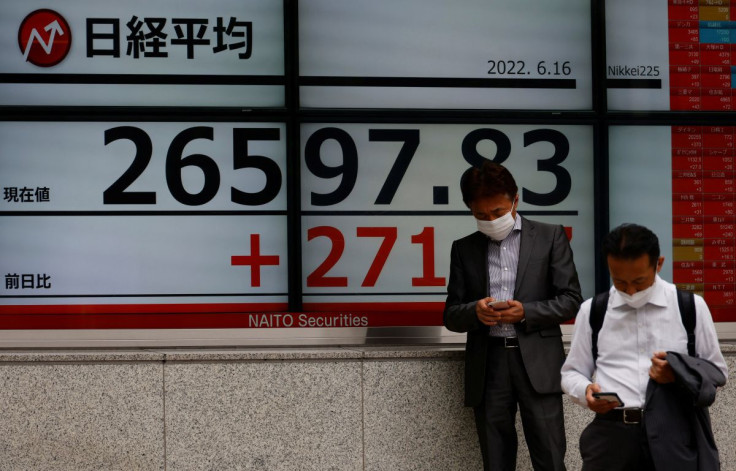European Shares Struggle Ahead Of U.S. Jobs Data

European shares opened slightly lower on Friday and struggled to make gains after the shooting of Japan's former prime minister caused a pullback in Asian shares, while investors waited for key U.S. jobs data later in the session.
Investor sentiment had been positive earlier in the session, which analysts said was due to attempts by U.S. Federal Reserve policymakers to ease recession fears and news of Chinese fiscal stimulus.
U.S. indexes had a positive close on Thursday after Fed Governor Christopher Waller called recession fears "overblown", while St. Louis Fed Bank President James Bullard said he saw a "good chance" of a soft landing for the economy.
But Asian shares gave up some of their gains and the safe-haven Japanese yen rose after news that Shinzo Abe was in grave condition, after being shot while campaigning for a parliamentary election.
Abe stepped down in 2020 citing ill health, but he has remained a dominant presence over the ruling Liberal Democratic Party (LDP), controlling one of its major factions.
The longer-term impact of the shooting on markets was unclear, said Guillaume Paillat, multi-asset portfolio manager at Aviva Investors, adding that he did not think it would impact Japan's elections this weekend.
At 0751 GMT, the MSCI world equity index, which tracks shares in 50 countries, was down 0.1% on the day but set for a 1.4% weekly gain overall.
Europe's STOXX 600 was up 0.1%, while France's CAC 40 was 0.2% higher and Germany's DAX was down 0.1%.
MSCI's broadest index of Asia-Pacific shares outside Japan was still up 0.3% on the day, but had retreated from the 8-day high hit earlier in the session.
The Japanese yen rose as much as 0.5% immediately after news of Abe's shooting, before steadying around 135.835.
The latest indicator of the health of the U.S. economy is due later in the day with the release of U.S. non-farm payrolls data. The consensus expectation is for 268,000 jobs to have been added in May.
"Employment matters because job security underpins the economic recovery," Paul Donovan, chief economist of UBS Global Wealth Management, wrote in a note to clients.
"Today's data should show some slowdown in job creation, but the payrolls and hours worked numbers have recently remained completely inconsistent with any idea of a recession."
The dollar index rose ahead of the data, up 0.6% on the day at its highest since 2002.
The British pound was down 0.7% against the stronger dollar after UK prime Minister Boris Johnson resigned on Thursday. ING analysts said markets likely welcomed the change in leadership but that it was too soon to tell the impact on the pound.
The euro was at $1.00895. It has slid towards parity with the dollar as investors worry that an energy crisis brought on by the uncertainty of gas supply from Russia can tip the continent into recession.
"Europe is still maybe on the back foot because of the uncertainty around the energy issue," Aviva's Paillat said.
Germany's benchmark 10-year bond was two basis points lower at 1.275%, while the U.S. 10-year yield was around 2.9798%.
The two-year, ten-year part of the Treasury yield curve inverted on Tuesday for the first time in three weeks. An inversion in this part of the curve is seen as a reliable indicator that a recession will follow in one to two years..
Oil prices were down, with Brent crude futures and U.S. West Texas Intermediate crude set for a weekly loss.
© Copyright Thomson Reuters 2024. All rights reserved.




















